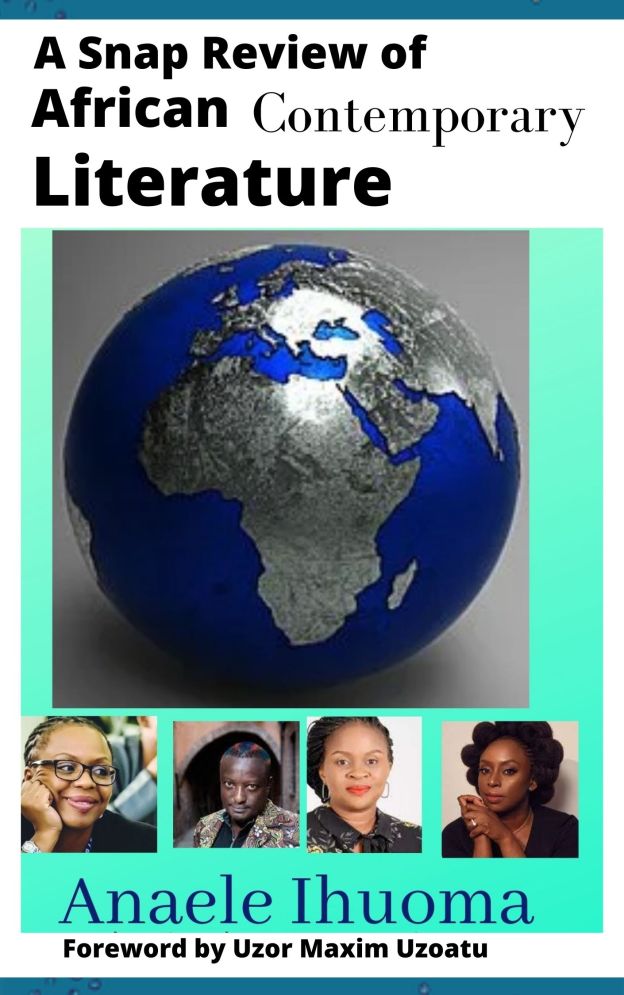Title: The Arm-Twist
Publisher: Kraftgriots, Ibadan.
Publication Year: 2017
In literature, it’s man that creates gods and goddesses, not the other way round. From the Greeks and Romans through the conservative John Bunyan and the socialist-leaning Bertolt Brecht, to the more mythopoeic-inclined Soyinka, and Osofisan of the modern era, pages of literature have been littered with divinities put up at the whim of man. In many instances, the manner these gods and goddesses are made to work often betrays a script with a vengeful back story, as if they are told, ‘here, clean up the mess you created!’
But in the age of dot com, artificial intelligence and hacking, a recourse to myth and legend needs to have a different kind of rationale. That is part of what Orlando Dokubo has provided in The Arm-Twist, his debut novel. The Arm-Twist makes no claims to myth-making of any sort, but you would have to traverse experiences beyond mythopoesis, beyond the firmaments framed by Freud and Jung, to socially situate a character like Ibiobara who, in a dystopian world that casts moral heroes as outcasts, dreams up her own husband and goes ahead to imbue him with the full complement of a metabolic and social reality complete with forest imp-to-palace dweller transformation. But The Arm-Twist is barely about Ibiobara; rather it traces the trajectory of Jemina’s improbable rise and fall. Jemina is the custodian of the mysterious egg, the wand that Ibiobara waves to achieve her esoteric agenda in this subtle rendering of the sub-genre of magical realism with an unmistakable social message. One point of beauty of the novel is that you would not even know that you were headed in that mythic direction until towards the last set of pages when apparently insignificant and unrelated matters are tied up and resolved. Another point, remarkably, is that Jemina’s transition from forest to city/country life and back to forest is so smooth you almost did not notice it. Dokubo transits into the world of make-believe so adroitly, making you rethink your erstwhile notion that perhaps because of the internet and its appurtenances, man had taken a sabbatical from his habitual binge on myth and legends. His ‘goddess’ is so tantalizingly anthropomorphic she gets involved with the minutiae of man’s most mundane concerns.
It takes the apparently insignificant micro sub-plot of the predicament of Adukoba, with whom Opuegberi the village woman, is adjudged to be in a son-lover incestuous relationship, towards the end of the novel , to present Jemina with the opportunity to play out his role as avatar of a new vision, to construct a platform for the dispensation of justice which, beyond personal motives and with the benefit of hindsight, might have been one of Ibiobara’s more altruistic motives for her bare faced man-making magic.
Adukoba is an Achebean Ikemefuna-like character who, in this instance, has multiple Okonkwo-fathers (chiefs Kaka, Ade and Omoni) none of whom, however, possesses the Okonkwo fiery temper, but each of whom endorses the young man’s one-way journey to the evil forest even as he protests his incest -and-murder innocence. Opuegberi herself is not too far from Elechi Amadi’s Ihuoma. She was married, not as in The Concubine, spiritually to a jealous sea goddess, but to a local farmer who, despite abandoning her for months, still forbade any close contacts with the men folk. Still, a fate similar to the one that befalls Ihuoma’s suitors and lovers trails each of four young men who “got somewhat friendly to her.”
The Arm-Twist may have twisted the arms of fate but it is men that end up worsted. “Men are cruel,”, laments an elder upon learning of the Adukoba-Opuegberi entanglement, “He sucked her breasts as a toddler, he sucked her as a man” is the accusation that sticks out like a sore thumb from an impromptu charge sheet. But Adukoba is not entirely without defenders: “she seduced him”, says an elder, “no man can climb a tree with a ladder unless the tree allows the ladder to rest on it.” At this stage, whether or not he is actually her biological son becomes a moot point.
This is the scenario to which Jemina, a magical-social reconstruct from an erstwhile grudge-bearing and much thwarted visionary must now impose his moral will and exert his newly found authority.
The Arm-Twist is a fine book with an unhurried story. It offers a variety of treats from the culturally rich, bio-diverse Niger Delta. It also flows nicely, except for one or two moments of grammatical unease (‘he had never partook in the celebrations’), which in no way hinder the savouring of the vintage offering.
JEMINA was an Exile from the community of men, pitching his tent, literally, with forest denizens, a neo-early man living on the proceeds of hunting. It was a life best-forgotten until his path crossed with Ibiobara, the local version of queen of fairies. From the moment he heard the soft, enchanting ‘Ibote’ from Ibiobara’s seductive lips deep in the forest, the greeting that culturally hypnotises him to her meals and ways, Jemina would remain under Ibiobara’s spell until another magical moment when he relapses into forgetfulness and utters the forbidden e-word…
In Mary Shelley’s Frankenstein, man creates a monster he could not control, but in The Arm-Twist Ibiobara keeps her man under her spell, perhaps for all the right reasons. But then, as in this novel, who can tell the final flight of fate’s arrow until the very last pages of one’s life?
Anaele Ihuoma.
Review type: Two page version of the normally one-page review series. Other novels reviewed under the series include: Lola Soneyin, The Secret Lives of Baba Segi’s Wives; Binyavanga Wainaina, One Day I Will Write About This Place, Teju Cole, Open City; Adaobi Tricia Nwaubani, I Do Not Come to You by Chance; Eghosa Imasuen, Fine Boys, Chimamanda Ngozi Adichie: Americana. Publishers with just-off-the-press mints can reach me via email: aihuoma@hotmail.com or inbox me at facebook.com/anaele Ihuoma.

